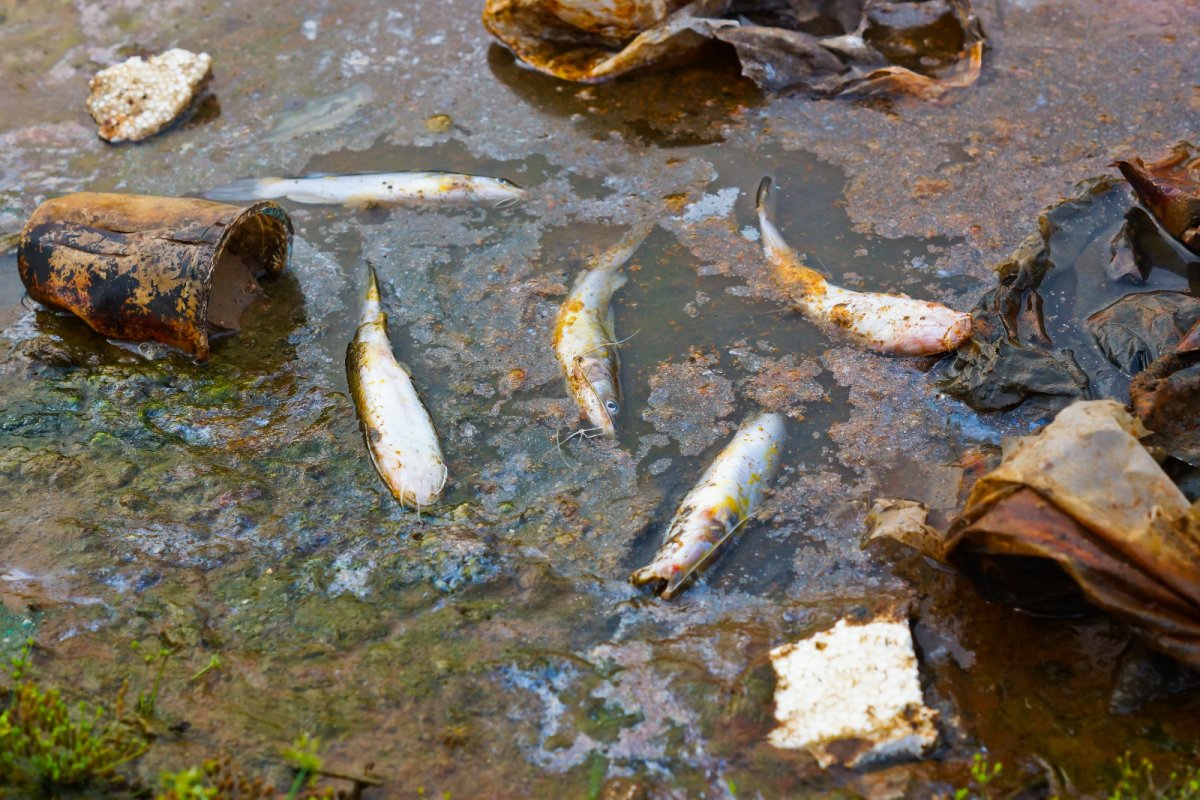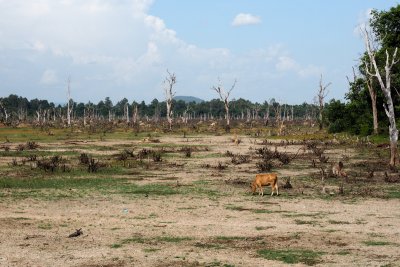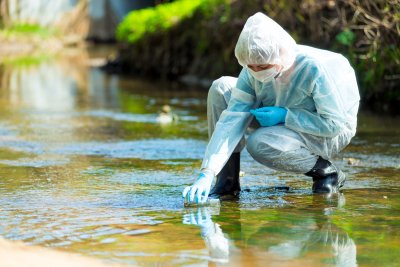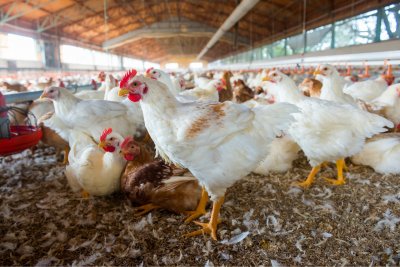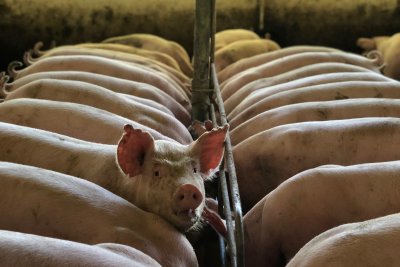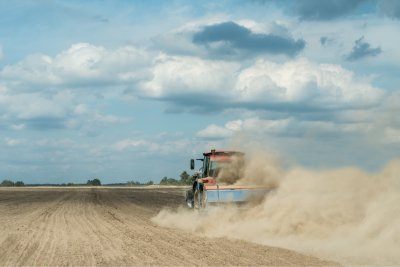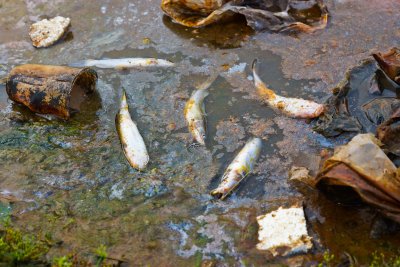 Dead fish in a river due to water pollution. Copyright: wk1003mike | shutterstock
Dead fish in a river due to water pollution. Copyright: wk1003mike | shutterstock
With regard to agricultural pollution, Defra's main response is to point to the Environmental Land Management scheme which it says it wants to increase uptake of in order to cover "70% of farmland and 70% of all farms by 2028 – up from the current 34% of farmland."
It also says it wants to pay for water body buffers and encourage more 'precision farming' via the Farming Innovation Fund.
Defra also says that it has set a legally binding target under the Environment Act 2021 to reduce nitrogen, phosphorus, and sediment from agriculture entering the water environment by 40% by 2038. There is an interim target of 10% by 31 January 2028,or 15% in catchments containing protected sites in unfavourable condition due to nutrient pollution.
It also says it intends to consult on extending environmental permitting to dairy and intensive beef farms, improve the effectiveness of permitting of pig and poultry farms and 'work with farmers to review and improve farming laws'. It also says it will provide £34 million for covered slurry stores, explore better uses of slurry via a Farm Equipment and Technology Fund, work with farmers on ways to improve manure nutrient use and facilitate organic fertiliser use through new fertiliser product laws.
Head of sustainable farming at Sustain, Vick Hird said:
"Agriculture and particularly intensive livestock farming is the number one cause of river pollution so it’s good to see government intends to take action. However, we really need to invest in whole farm, agro-ecological systems, like organic, that optimise the use of natural fertilisers, creating healthy soils and healthy plants. In particular, we need a larger budget for the Environmental Land Management that government is promoting so that all farms can move to more nature friendly farming and still remain viable."
Climate and nature emergency coordinator at Sustain, Ruth Westcott said:
"The Government’s plan for agriculture hinges on environmental permits for livestock farms but what is actually needed is stronger planning policy to prevent more opening. Intensive livestock ‘megafarms’, which produce huge amounts of slurry, are increasing in number and our land and rivers can not cope with the agricultural run off. Defra must urgently work with the housing department (DLUCH) on their review of planning policy, which is expected later this year. We need pollution, recovering nature and reversing climate change to be material considerations in all planning decisions."
Environmental group River Action say it's ineffective without funding for regulators and campaigner Feargal Sharkey slammed it as 'muddled'.
You can read Defra's Plan for Water in full here
Climate Change and Nature: Sustain has taken a keen interest in the rapidly accumulating evidence about the effect of food and farming on climate change and nature, as scientific evidence emerges that our food system is a very significant contributor to greenhouse gas emissions and biodiversity loss.
Sustain
The Green House
244-254 Cambridge Heath Road
London E2 9DA
020 3559 6777
sustain@sustainweb.org
Sustain advocates food and agriculture policies and practices that enhance the health and welfare of people and animals, improve the working and living environment, promote equity and enrich society and culture.
© Sustain 2024
Registered charity (no. 1018643)
Data privacy & cookies
